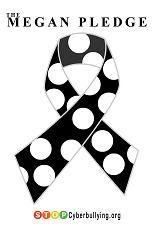Being a “special needs parent” is not like being another kind of parent. Apparently there are people here who don’t know that, or don’t want it to be a reality. But it is. Parents who do not have special needs kids really and truly have no idea what it is like to have a special needs kid, or what it is like to be a special needs parent. Most parents are living it up in Italy, and we’re over here in Holland- or, probably more properly, India.
I love India. No, the real India, I mean. I spent three months there, and a separate three-week trip before that. I wish I had been there longer. I’ve never been to the real Holland, but I’ve been to Belgium and Germany, both of which are spotlessly clean, at least in the tourist districts. They are beautiful, wonderful places… but clean. Very, very clean. And in many ways, very like places in the US.
India is a whole new world. There is dirt, grime, heat, poverty, cows, beggars… the whole crunch of human life. Clean water comes in bottles. The hotel room uses a geyser for hot water, and it only will heat a couple gallons at a time, and then you use a bucket and cup to actually take the shower. Air conditioning is a rarity- as is refrigeration. In the villages, you’re lucky to have running water, and you have electricity for only a few hours a day (and not consecutive hours). Paved roads are a city “thing,” motor-rickshaw is the transport of choice, and cows have the right-of-way. Living in India when you expect the standards of US living is a really big challenge.

If you spend your entire trip in India focusing on these challenges and wishing you were in an international hotel, you really miss the wonders that are India. You would miss sitting on the far side of Sanchi Stupa 2, in the breeze, with the scent of ashoka blossoms and the plateau stretched out below you. You would never see a shrine in the middle of road, draped in orange and yellow garlands and filled with carnations, while incense and the ringing of bells fill the air. No one would be able to run up to you from the local temple and offer you prasad, or ask you to hold their baby while they take a photo. You would never see the lights of navaratri or the colors of a fruit market, stacked high in the morning. You’ll never share lunch with a troop of monkeys. If you don’t go into that cave that smells of bat dung, you will never see the paintings of Ajanta.
At the same time, what’s so wrong about sometimes wishing you could stay at an international hotel and have a nice, gourmet dinner? Or just be homesick, wishing we were in a comfy living room with a TV, wearing our favorite pajamas? Our problem is whenever someone here mentions being homesick, we’re told that India is a beautiful place, it’s where we are, and we shouldn’t “be that way.“ The Dutch and Indians often have no idea why Italy is such a big deal, and get insulted when someone wishes they had seen the Sistine Ceiling. Did these people never wish they had won the lottery? Never wonder what life would be like if they lived in a different house? Have they never seen the Monty Python skit about the accountant who wants to tame lions? But we, as parents, are not permitted to be homesick. We aren’t allowed to wonder about dreams we once had, or mourn their loss. After all, we’re moms and dads. We’re not supposed to be human…
Meanwhile, my long talk with my friend…
We “forget” that our kids are “disabled.” This is just who they are. When you live in India, India is normal, and you spend weeks on end not even thinking about Italy. Our kids wouldn’t be who they are if they were not disabled. On the other hand, they wouldn’t need the help and support for the rest of their lives, either. Joey could play with the other kids instead of spending whole days in therapy-- basically, in school. For those of you who have forgotten, most kids like vacation a LOT better than school. But then, most kids don’t scream bloody murder when they are served their spaghetti in a blue bowl instead of a red one, or when they have to go to the park instead of the pool. They can swallow their food without being taught to do so.
My friend is sometimes sad when she sees kids walking down the street, hand in hand with their mom. Her kids will never walk down the street. She will probably never know the feeling of having her children tell her “I love you.” She doesn’t dwell on it. Her children are not a burden to her, she takes pride in every little accomplishment they achieve, she loves them and supports them. We trade phone calls: “Max sat up by himself today!” “Great! Joey answered a question today!” “HOORAY!” They are our children. But there are those moments when we are reminded that life was going to be so different. We were going to have jobs, spend afternoons in the park, go for spontaneous trips to the zoo or the grocery store. It would be nice to be able to join the other parents down at the local eatery for a beer now and again. Just now and again. According to many folks who emailed me, having such thoughts and moments make us anything from mean, horrible parents to outright evil people who should give up our kids to the State for foster care. Our lives are not as scrubbed and tidy as Holland. Should I wish it were?
The real world really has dirt, and poverty, and heat, and irritation, and inconvenience. It is beautiful, anyway.




















10 comments:
Oh JM, I envy you the friend down the street. Yes, you are right; being a special needs parent is NOT like typical parenting in many regards. The extremes (both highs and lows) can be so intense that it is utterly exhausting and sometimes you breakdown. I am glad for you that there are people who can help pick you back up, too. :-)
I think it may be that both sides of the coin can get equally touchy about wishing for or wondering "what if" and constantly feeling as if one must defend not only one's inherent nature but their right to be exactly as they are. It is such a fine line. Sometimes the expressions on both sides can be hurtful and can fester under our skin like a splinter that won't let go.
Our challenge as the special kinds of parents we are is to be able to feel and express while respecting and nurturing. I think you do that very well. Seomtimes you have to stand for yourself amidst a flood of perceived criticism and try to hear the message that is beneath the intonation. Much like we must do for our children sometimes — filter out the behavior and try to decipher the communication. It is a dance we all must learn together.
I'm angry that people are stupid jerks.
I still think you're the best.
That was a beautiful analogy.
My verification word was "lofturdy". *snicker*
That was a beautiful and sensible post.
This is just a guess but, by any chance, were all of the people who gave you flak for your other post NOT parents. The thing is, it is not until you become a parent that you fully realize that the angels do not bestow magical power on folks when they get kids. Growing up, we think our parents are all powerful. We see them as having shortcomings, but we also see all shortcoming as somehow or another their fault. That is the same standard that we apply to other parents too, until we have our own kids. Then we understand. Like anything else worthwhile, parenting is hard work with no instruction manual, and sometime you wish you could take a break. Any parent should be able to understand that, and almost all non-parents do not.
I clicked on over here from McEwen's place. And I'll start by saying I'm not sure what to say (then go on to say too much).
I don't have a special needs child but I've read that trip to Holland essay. (Is it bad that while you were expressing something very real and difficult, I had a little smile at the Holland/India/Italy comparisons?)
Like I said, I don't have a special needs kid and so I can't speak to the joys, the difficulties, whether it is more like Holland or India. But what you wrote sounds like you know what you are talking about, like you know the difference and that wishing for an air-conditioned hotel room with hot water once in awhile is real, human, normal.
So, for what it is worth (and it might not be much), this total stranger was moved by what you wrote today and thinks that the naysayers of whom you speak need a mute button.
The children may never be normal. But we are all still entitled to a life that doesn't include them once in a while. Which is why 2 weeks ago I was in CA visiting a friend.
May I recommend a book I just reviewed for the Autism Ontario magazine "More than a Mom"... a good support book for those that are overwhelmed.
S.
I think Blogger may have eaten my comment. Sigh! Beautiful post.
Thank you. You summed it up nicely.
Well, I certainly don't find blame with those feelings. But for my family, we have had very different expectations than is usual in this country anyway, from the getgo, before I was born or anybody knew I was disabled.
For instance, most of those living conditions you described about India, such as with bathing, lacking hot water, using electricity not much, those sorts of things, sound a heck of a lot closer to the physical environment of how I actually live than the usual standards for this country. Not that it's always been like this, but then again I put little value into material possessions.
So again, I don't fault people for this, but it is certainly alien to my family. Of course my mom was frequently exasperated when I was growing up, had lots of times where she'd cry because she has a hard time dealing with things, and she would go into the "I'm-such-a-terrible-mother" mode despite lack of evidence, it's really not more trouble than she's had with my sisters, though for completely different reasons, and it probably seemed to here like I was a lot more difficult because she couldn't wrap her head around WHY I had to have the "right bowl" and "right silverware" and couldn't eat my sandwich if it wasn't cut "the right way". I think another major difference is that nobody knew I was autistic until I was 10, and even then most of the disabling aspects went unacknowledged until 8 years after that. Different sets of problems, but I think it removed the stress over getting me into therapy programs and things, though of course the worry about how I would become more independent still came up. But it still felt more relaxed, because even for normal kids there is no concept around our house of things that we "should be able to do" other than of course be decent human beings and try at things we attempt.
Of course, some things would've been easier knowing earlier, but there would be a definite trade-off. My parents didn't really have expectations about being parents, other than it would be hard, so they wouldn't be the best to ask about what it's like to wonder about what could've been, because usually we're just living so day-to-day, there's only time to focus on what is.
One thing that I wish though would be that my mom understood earlier that she isn't being a bad mom or unappreciated or anything. Her life has never been easy, and I hate it when her boss doesn't understand and treats her bad for coming to work late because of me and stuff like that.
You make some excellent points- but I bet this post remains relevant to the experience of your mom. There may not have been pressure to get therapy, but I have found in talking to all sorts of mom from all over the world (including India) that having a child with clear differences still results in feelings of "we're different." Parents of children who are not considered disabled, but are somehow apparently not doing well in school, not doing well becoming independent, not picking up skills other children are clearly picking up are often targeted for criticism, pity, concern, etc.- all of which mark their child and their experience as "different."
Having few expectations of being parents is not the same has having none at all. Even my friend Christina, who discovered that her children would be disabled while still pregnant, at one point entertained expectations of normalcy... even though she hadn't realized it until it became clear that would not be her experience for any of her children.
Post a Comment